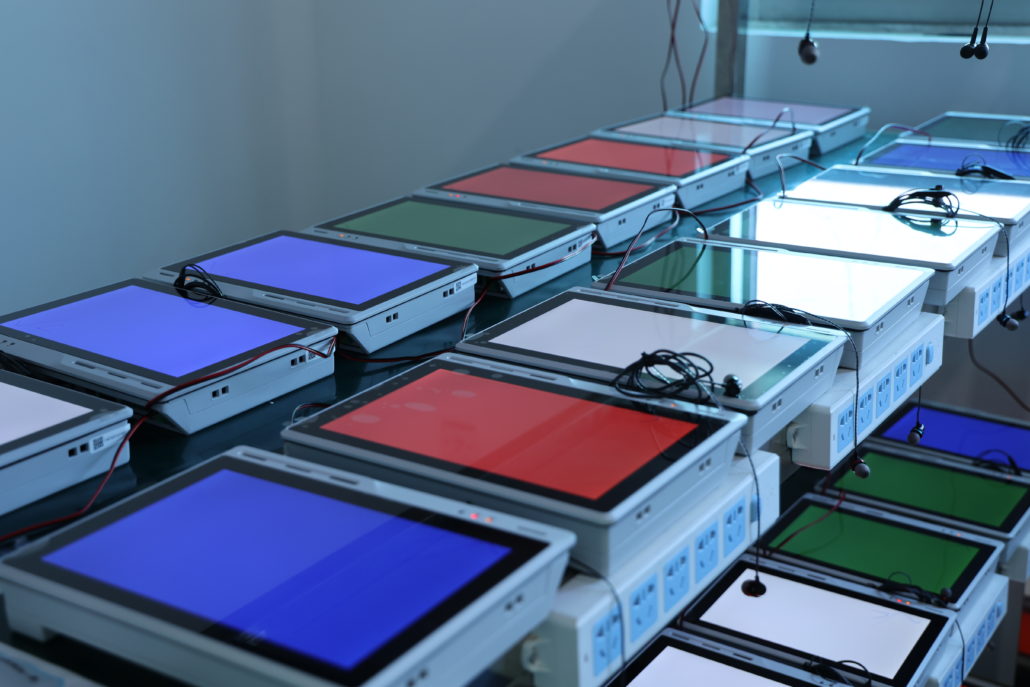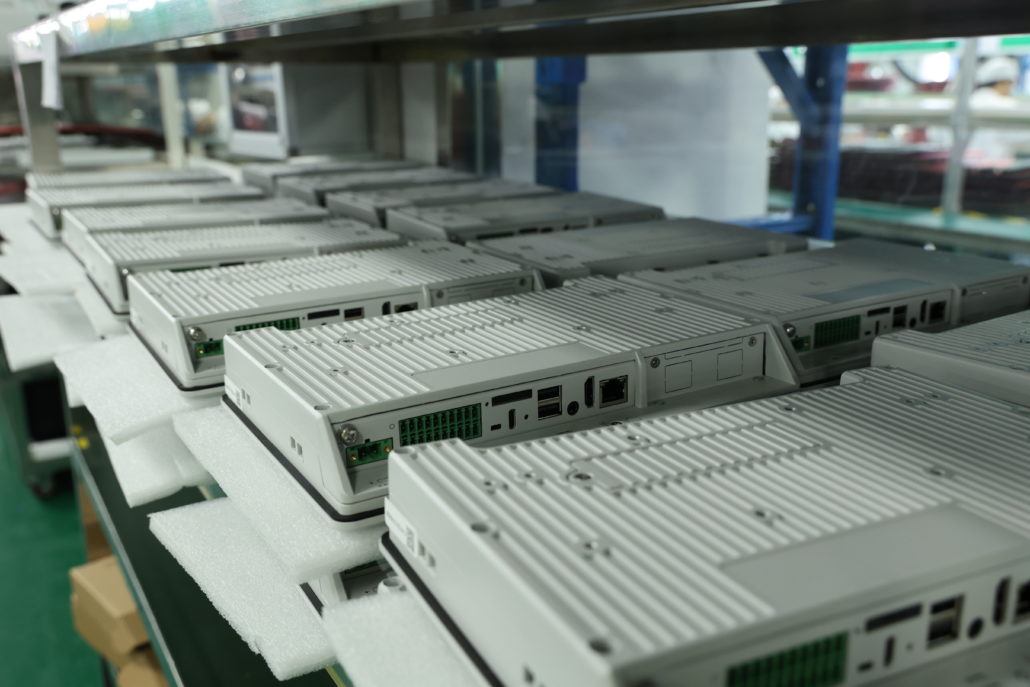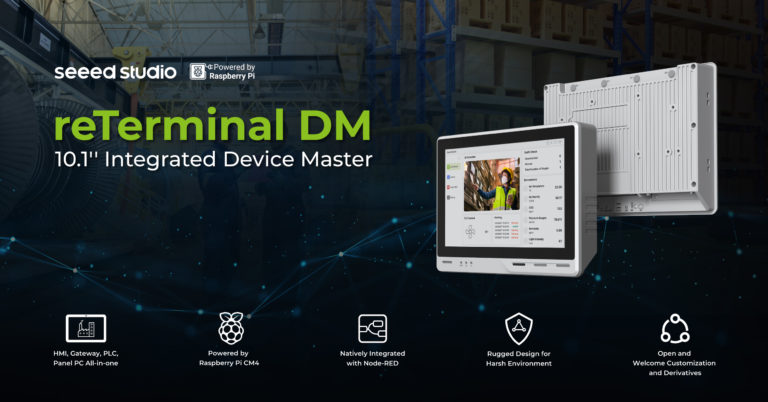What is HMI?
HMI stands for Human-Machine Interface, which refers to the interface between a human operator and a machine, often a computer or a piece of industrial equipment. The HMI enables the operator to interact with the machine, monitor its performance, and control its operation.They are widely used in many industries, such as the automobiles, entertainment, electronics, medical equipment, banking, and service industries.
An HMI may consist of a touchscreen display or other input device that displays data and allows the operator to enter commands. The HMI may also include sensors, switches, and other components that provide feedback to the operator and enable them to adjust the machine’s settings more effectively.

What is HMI Used for?
HMI technology is used in various industries for different applications. In manufacturing, it is used to monitor and control production processes and equipment, while in the oil and gas industry, it monitors drilling, production, and refining processes. In water and wastewater treatment plants, it is used to monitor and control treatment processes, and in transportation, it is used to monitor and control systems such as propulsion and navigation. In healthcare, HMI is used to monitor and control medical equipment. Also a HMI with gateway functionality can remotely monitor and control PLCs and other devices, allowing operators to monitor and control production processes from remote locations
Overall, the primary goal of an HMI is to provide a user-friendly interface that allows operators to monitor and control machines and processes more effectively in different industries.
Seeed's Raspberry Pi-powerd HMI reTerminal DM
As an officially certified design partner of Raspberry Pi, we have been committed to more innovation and development in the field of Raspberry Pi. After launching Raspberry Pi-driven gateways, edge controllers, routers, and small HMIs, we launched an upgraded version of reTerminal, reTerminal DM, based on the great demand from our users and also our technology accumulation in the field of Raspberry Pi. This is an HMI device with a larger screen and more industrial-grade protection.
Users of reTerminal DM now span across various industries, including safety control in gas stations, water management and flood prevention for outdoor use, small computer applications in healthcare, constant temperature management for smart buildings, access control for office spaces, manufacturing line HMI, AI integration for defect detection in factories, and more. More and more users are finding us and choosing our products for their reliability, open-source nature, and customization options. Our products continue to witness various possibilities in different fields.
We are truly excited to share with each and every one of our users the passion and innovation we have poured into this product. Throughout the product design and development process, we have continuously listened to our users’ feedback and needs and made a conscious effort to integrate valuable user input into the design, and have always adhered to industrial-grade standards to ensure that every step of the process meets the requirements for an HMI device that can be used reliably in harsh environments. This is yet another milestone in our exploration of Raspberry Pi devices!
Although it’s a long story, I still want to share it bit by bit with you all and witness together the birth of this exceptional product.
From each component, PCB design, to strict production test, All details of reTerminaldM are well-prepared for industrial use.
- IP65 front panel
- Die-cast aluminum alloy housing
- -10~50°C operating temperature
- 10~95% RH operating humidity
- Electrically isolated IOs and interface
- Meet strict EMC testing standards
- And more
reTerminal DM's IP65 Front Panel
The IP65 rating is a standard defined by the International Electrotechnical Commission (IEC). It is used to classify the level of protection provided by an enclosure against the intrusion of solid objects and liquids. This rating system is typically used for industrial-grade electronics, such as computers, controllers, and other electronic equipment. The IP65 rating indicates that the device is dust-tight and protected against water projected from a nozzle. IP stands for “Ingress Protection”, while the subsequent two digits are ranked based on the product’s ability to protect against solids (0 – 6) and liquids (0 – 9K). If either digit is 0, then it means that it has No Protection, while higher numbers symbolize an increased degree of protection.

Normally industries that require IP65-rated devices include manufacturing, automotive, food and beverage, healthcare, and transportation. These industries often require devices that can withstand harsh conditions and are dust-tight and water-resistant.
The reTerminal DM with its IP65 protection rating is better suited for a wider range of industries. We have perfectly ensured the front panel’s IP65 industrial protection rating of the ReTerminal DM at a very controllable cost, ensuring that the HMI can still operate stably in more demanding environments.
As I mentioned above, this product has been successfully deployed and used by users from different industries, including but not limited to automation, water management, healthcare, smart business, energy management, etc.

Die-cast Aluminum Alloy Housing
Common materials used for HMI device housing include plastic, stainless steel, zinc alloy, and aluminum alloy. Plastic is lightweight and cost-effective, but is not as strong or durable as other materials. Stainless steel is strong and durable, but is more expensive and heavier than plastic or aluminum alloy. Zinc alloy is lightweight and corrosion-resistant, but is not as strong or durable as stainless steel or aluminum alloy. Aluminum alloy is lightweight, strong, and corrosion-resistant, making it a popular choice for HMI device housing.
HMI devices with die-cast aluminum alloy housing are designed to be lightweight, yet strong and durable. The aluminum alloy material provides excellent corrosion resistance, making it suitable for use in outdoor or industrial settings. Additionally, the material has good heat dissipation properties, which helps keep the device cool and prevents overheating. The die-cast aluminum alloy housing also provides good electromagnetic shielding, which helps reduce interference and improve signal quality.
The reTerminal DM is designed with an aluminum alloy die-cast enclosure, providing an optimal balance of cost and reliability for wider applications. BTW, if you have already had a reTerminal DM by your hand, try touching its enclosure! It has been proven to be solid and have an excellent shell texture!

More
In addition to the above two points, I also can not wait to share other bits and pieces about reTerminal DM and Seeed’s Raspberry Pi-powered devices highlights, including but not limited to how we ensure the quality and reliability of products through strict industrial production and testing processes, such as how our users put This product is deployed in their solutions, and so on. Stay tuned!

